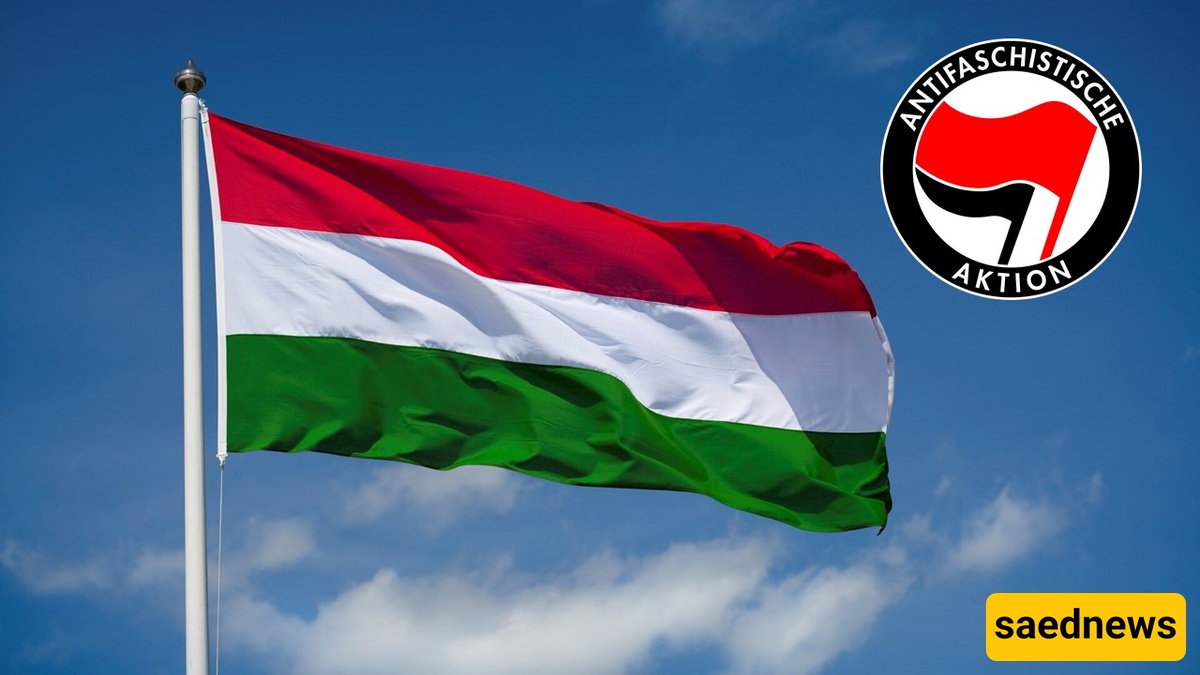SAEDNEWS: Hungary’s foreign minister has called on the European Union to designate Antifa as a terrorist organization, citing a series of violent incidents across Europe and urging coordination with the United States.

Hungary’s Foreign Minister Peter Szijjarto has formally demanded that the European Union classify Antifa as a terrorist group, citing multiple violent incidents allegedly connected to the anti-fascist movement in Germany, France, Italy, and even Budapest.
In a post on X (formerly Twitter), Szijjarto shared excerpts from a letter sent to EU foreign affairs chief Kaja Kallas, emphasizing the urgent need for European nations to recognize the threat posed by the decentralized, far-left network.
“Individuals and groups linked to the so-called Antifa ideology have carried out numerous terrorist attacks across the European Union,” Szijjarto wrote, pointing to a pattern of violence that he claims has allowed suspects to evade justice by relocating to other EU countries.
Szijjarto highlighted the case of Italian activist Ilaria Salis, who was arrested in Budapest in February 2023 during a demonstration against neo-Nazi commemorations.
“To our great regret, Salis gained immunity after becoming a Member of the European Parliament,” he noted, arguing that her election allowed her to end her house arrest, showcasing what he describes as the dangers of Antifa actors avoiding accountability.
The Hungarian minister insisted that these acts clearly illustrate that Antifa represents a grave threat to public safety and European stability.
Szijjarto also cited former US President Donald Trump’s recent designation of Antifa as a “major terrorist organization”, urging the EU to adopt a similar stance.
“We are convinced that on such a crucial matter, Europe must align its steps with the US, the leading force in the global fight against terrorism,” he said.
During Trump’s first term, he similarly threatened to designate Antifa following widespread protests in 2020 triggered by the killing of George Floyd, highlighting ongoing concerns about the movement’s capacity for civil unrest.
Unlike traditional terrorist organizations, Antifa is not a single, unified group. It is a loosely connected network of left-wing activists and organizations, primarily in the US and Europe, that confront right-wing and fascist movements.
This decentralized nature makes it legally and administratively challenging to define and regulate, but Hungary argues that recent incidents clearly cross the line into violence and terror.
If the European Union were to adopt Hungary’s recommendation, the move could result in:
Official classification of Antifa as a terrorist organization at the EU level
Heightened monitoring and coordination among European security agencies
Alignment with US policies for transatlantic cooperation on counterterrorism
However, experts warn that enforcing such a designation may spark debates over freedom of expression, political protest rights, and the complexities of prosecuting decentralized networks.
Hungary’s push comes amid growing concerns about violent left-wing activism in Europe. The government stresses that the EU must act decisively to prevent further lawlessness, protect citizens, and maintain security.
Szijjarto’s statements signal that Budapest sees Antifa not only as a domestic threat but as a Europe-wide challenge requiring transnational cooperation. By referencing US precedent, Hungary is framing its request as part of a global fight against terrorism, hoping to gain support from like-minded allies.
“These appalling acts illustrate beyond doubt that the Antifa movement constitutes a grave threat,” Szijjarto concluded, warning that failure to act could embolden extremists and further destabilize the continent.
As Europe grapples with how to respond, Hungary is pushing a bold narrative: Antifa is no longer just a protest movement—it’s a threat that demands immediate legal recognition and action.

